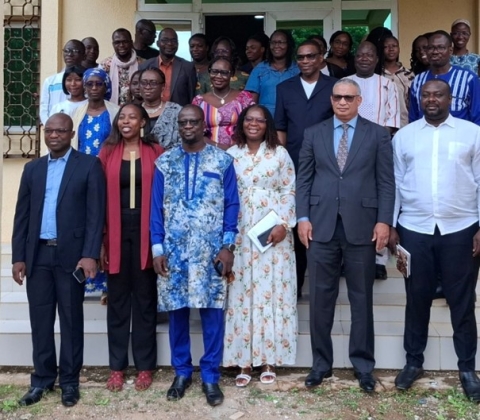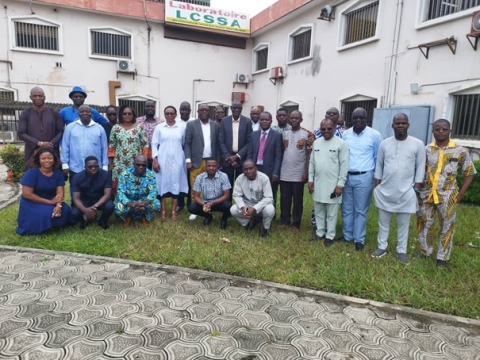ECOWAS Rice Observatory: West African rice stakeholders call for the establishment of an "ECOWAS women's platform in the rice sector"
The ECOWAS Commission, through its rice sector coordination mechanism and its multi-stakeholder platform of actors and partners, the ECOWAS Rice Observatory (ERO), in collaboration with GIZ-MOVE, organized a two-day consultative meeting on gender equity for rice sector development on 18 and 19 March 2025 in Abuja. The meeting brought together over 90 participants from stakeholders in ECOWAS Member States and representatives of ERO country chapters, women's groups and youth organisations, National Rice Development Strategy focal points, policy makers, NGOs and private sector actors across the rice value chain.
For the ECOWAS Commission and its partners, understanding the level of inclusion of women and young people in the rice sector is crucial. To this end, a gender equity review was carried out, revealing that various projects, programmes and policies took gender equity into account, as well as promoting the inclusion of women and young people in agriculture.
The review found that there are no specific strategies and actions to address women's issues in the rice sector. In addition, gender inequality persists, with significantly low representation of women across the value chain, and their strong potential remains untapped. This is due to systemic barriers and challenges such as limited access to land, inputs, credit and technology for those involved in rice production and processing.
At the end of the two days of discussions, the key results achieved included: the successful validation of the gender equity review report with clear recommendations for action; the identification of key elements for the gender equity strategy in the rice sector through a participatory approach during the working sessions; the development of an action plan with concrete activities to promote gender equity in the rice sector and finally the commitment of stakeholders to support the implementation of the proposed activities.
The main recommendations of the meeting were the joint call to develop a gender equity strategy for the rice sector and to establish the ECOWAS Women's Platform in the Rice Sector (PFRC), which will focus on strengthening women's participation along the rice value chain and advocate for policies/programmes that strictly support women's inclusion through a single voice. By boosting women's participation, the PFRC aims to stimulate economic growth and contribute to food security throughout the region. This platform will be replicated at national level and will operate within the framework of the ECOWAS Rice Observatory, rather than as a stand-alone entity.
The discussions and enthusiasm of the stakeholders demonstrated that when women have equal access to resources, agricultural production will increase, benefiting the whole community.







